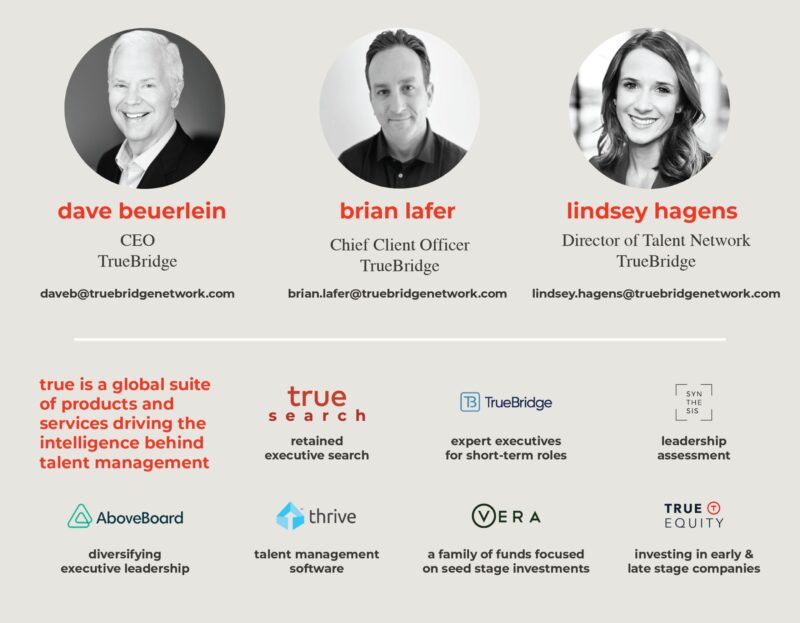Scott Samios has been leading revenue and go-to-market teams in early-stage tech for 25 years, and he’s good at it. “I realized that I always wanted to go back to the seed stage, again and again, because I love that,” he said. But as he advanced in his career, it became harder to find startups that could afford his experience.
So Samios found another way to work at the stage he loves: He began working for companies as a fractional, or part-time, chief revenue officer.
“It’s a lifeline to founders,” he said.
Samios is just one of the growing number of executives breaking away from full-time roles and offering their experience on high-impact projects on a short-term basis. The value of these fractional and interim leaders is becoming increasingly apparent as the economic environment fluctuates and as executives’ career expectations continue to evolve.
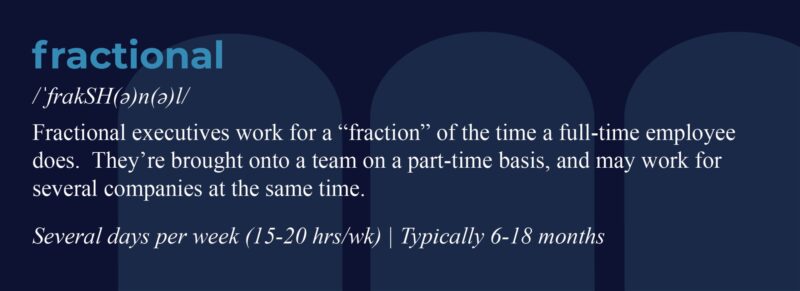
Everyone wants agility, impact, and flexibility
Fractional and interim opportunities are gaining traction because of the prevailing sentiment of this moment in time. The seismic changes companies and workers underwent during the pandemic have shifted priorities and opened minds to new, more flexible ways of working.
Some of the best talent in the world is choosing to go or stay interim or fractional even when they can get highly-competitive full-time roles. They cite reasons like professional control, immediate opportunities, ability to make an impact and appreciation of variety, for why they chose to work on a short-term basis. Even at the very top, people are seeking flexibility that extends into their personal lives. Nearly 70% of c-suite leaders are thinking of switching to a role that better supports their well-being, according to a Deloitte/Workplace Intelligence survey.
For experienced CFO and board member Jenny Ceran, working as an interim CFO meant the flexibility to target the type of work she loves while trying something new. “I am an extrovert, so the aspect of getting to know a new industry, a new group of leadership, a new business model: that drives me,” she said.
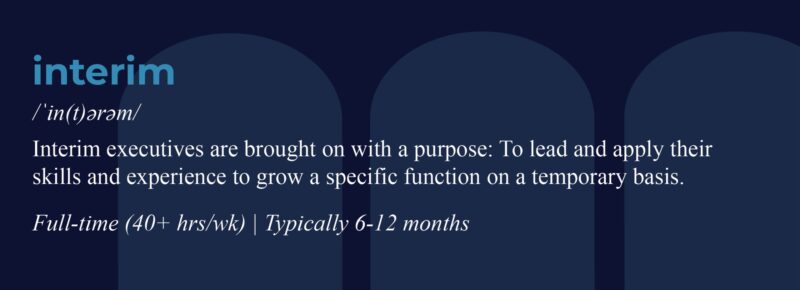
Long-time chief people officer and Guia Consulting founder Dan Sonsino has completed seven interim CPO roles in the last five years. He enjoys the challenge and variety of his interim assignments. Sometimes he’s a company’s first CPO responsible for “breaking in the executive team to having a chief people officer.” Other times he’s brought on board to “keep the lights on and deliver on senior, strategic priorities and keep the operational pieces going with the team that’s in place” while they search for a full-time hire.
For Scott Samios, the ability to focus on having true impact makes a real difference. He said the narrowed mandate and separation from the internal politics that comes with being fractional helps him achieve more in fewer hours.
“Having a little bit of distance from the company allows me to be judicious about what I spend time on,” Samios explained. “Even when I have two or three clients at a time, it’s not the same as being full-time.”
Reviews from Samios’s former employers validate his impact. Former colleagues have said that while they were aware that his employment was only fractional, they always found him to be a fully present part of the team.
“This is clearly an option everyone finds valuable—for companies to have a new way to quickly access great talent, and for executives who are looking for a new way to work,” said Dave Beuerlein, CEO of TrueBridge, True’s interim and fractional executive search business. “There are many executives who have achieved a lot, are incredibly talented, eager to continue to contribute, and now want to continue to utilize their skills and have more flexibility in how they work.”
Hiring in times of uncertainty
Concern about the economy has driven several companies to hit pause on hiring. 68% of CEOs surveyed by The Conference Board said they’re bracing for a recession. Uber CEO Dara Khosrowshahi announced plans to “treat hiring as a privilege,” and Salesforce, Tesla, Snap, Meta, and many of the world’s top tech companies have shared similar intentions to slow hiring or trim staff. Layoffs have begun at some companies, and there’s been an increase in companies rescinding candidate offers.
It’s a reversal from the prevailing sentiment of just a few months ago when companies flush with investment couldn’t hire executives fast enough to answer their mandate to scale. That hesitancy to hire opens the door wider to fractional and interim workers.
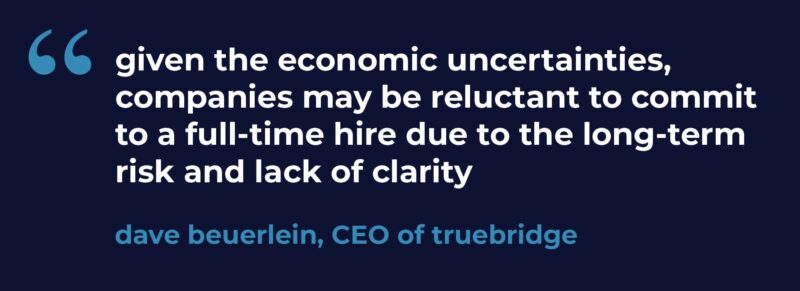
“Of course, businesses will always hire full-time executives: That never stops. But given the economic uncertainties, companies may be reluctant to commit to a full-time hire due to the long-term risk and lack of clarity on whether they’ll need that role beyond a finite period of time,” said Beuerlein.
Interim and fractional executives bring that quality needed in a downturn without the added cost and administrative burden to the company for benefits, onboarding, equity and more. They also can bridge the gap over troubled waters, achieving strategic goals outlined at the time of their hire to put systems in place for the full-time hire that will follow them.
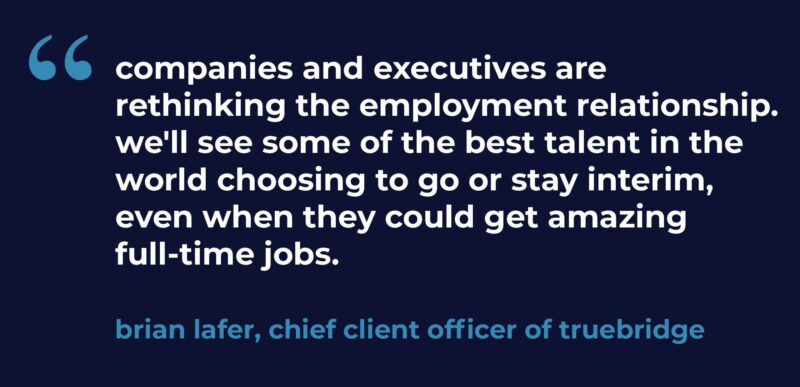
“Clients historically have taken an ‘autopilot’ approach to full time hiring,” said Brian Lafer, Chief Client Officer for TrueBridge, “But if you ask what that hire will be doing a year down the road, a lot of people struggle to find an answer. Which begs another question: why are you hiring full-time if you aren’t sure what that role looks like in the long run?”
While the current economic conditions may create more opportunities today for interim and fractional work, the growing popularity of this alternative work arrangement looks likely to continue. In Europe, where interim work has a more established history than in the U.S., the International Network of Interim Manager Associations reported an increase of 7% in billed hours in 2021, with the UK and Austria leading the way with a 16% increase. The U.S. Bureau of Labor Statistics reported a 33% increase in employment for senior temporary management positions from 2020 to 2021. The growth of new companies focused on this segment also speaks to the trend.
TrueBridge has been embraced by executives exploring a fractional future. The majority of the 500 candidates recently added to TrueBridge’s network are new to interim and fractional roles. Others who made the switch to flexible roles during the pandemic have turned to TrueBridge for opportunities beyond their own networks.
“The response to the launch of TrueBridge has been extraordinary,” said Beuerlein. “Clearly this is complementary to the executive search industry and is something the market has been waiting for.”
